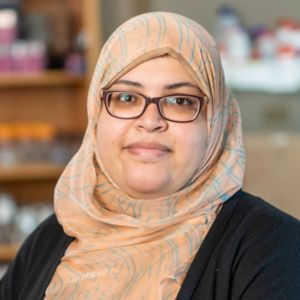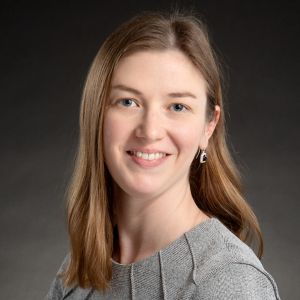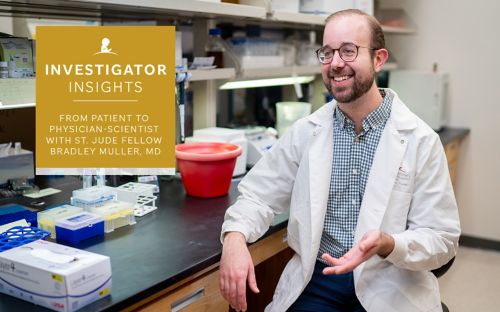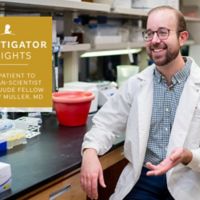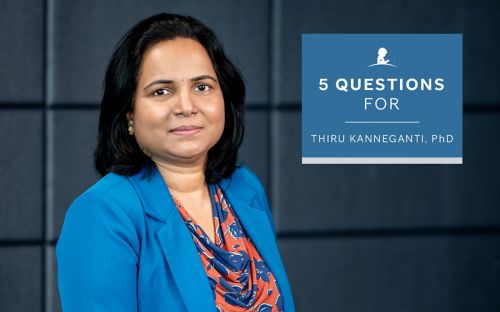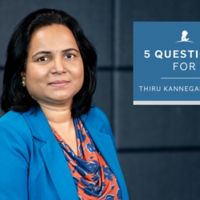5 Questions for Noha Shendy, PhD
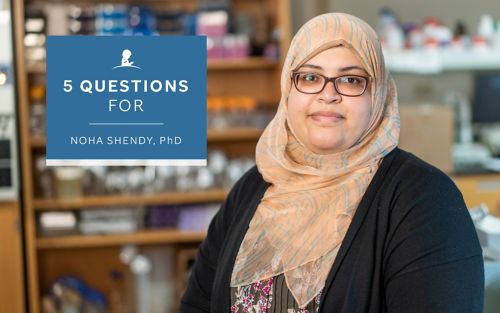
Postdoctoral researcher Noha Shendy, PhD, is investigating difficult to treat childhood cancers to identify new therapeutic opportunities.
This question-and-answer series explores the motivations, inspirations and accomplishments of investigators at St. Jude. Noha Shendy, PhD, is a postdoctoral research associate in the laboratory of Adam Durbin, MD, PhD, in the St. Jude Department of Oncology, Division of Molecular Oncology.
1. Why did you decide to become a scientist?
I was drawn to the field of science by a fascination with the profound complexity of cellular processes: the precise orchestration of molecular events, the timing and spatial coordination that lead a cell to change its fate or behavior. I am driven to understand how a single signal can trigger an entire transcriptional program*, impacting crucial aspects like embryonic development, immune responses and cell division. I aspire to unravel how disruptions in these fundamental processes contribute to diseases, particularly cancer.
*Transcription is a fundamental cellular process during which genes in DNA are copied into messenger RNA (mRNA). During translation, the information contained in mRNA is used to produce proteins.
2. Your work focuses on childhood cancer. What big unknowns still exist in your field that you’d like to answer someday?
In the field of childhood cancer research, significant progress has been made in understanding the disease at a fundamental level to design more effective and targeted treatments. However, one of the most pressing challenges in cancer treatment is achieving a complete cure, as relapses are often more aggressive and treatment-resistant forms of these diseases. This is particularly true for solid tumors. My research focuses on uncovering the mechanisms that allow certain cancer cells to survive treatment and later evolve into more aggressive, drug-resistant states. By gaining insights into these processes, we aim to develop innovative therapeutic strategies to prevent or target these resistant cell populations in childhood cancer.
3. Why did you decide to do your postdoc at St. Jude?
I was drawn to St. Jude Children’s Research Hospital for several reasons. At the research level, St. Jude fosters a deeply collaborative environment. I consider collaboration to be crucial for the success of any research project. Moreover, the mission of St. Jude goes beyond obtaining answers; it’s about utilizing those answers to pave the way for cancer cures. On a professional level, St. Jude provides substantial support for postdocs to prepare for their future careers through an outstanding academic program dedicated to helping postdocs navigate their professional paths and explore their options. This makes St. Jude a wonderful place to train and develop as a scientist.
4. Tell me about a teacher, mentor, or colleague who has helped you in your career — how important was their influence on your career path?
Throughout my career journey, I’ve been fortunate to have had the guidance and support of several exceptional mentors and colleagues. At St. Jude, my current mentor, Adam Durbin, MD, PhD, and our collaborators, Martine Roussel, PhD, and Brian Abraham, PhD, have greatly contributed to my development as a scientist. Previously, my PhD mentor at the University of Memphis, Amy N. Abell, PhD, played a pivotal role in my career. Their unwavering belief in my potential and encouragement to explore challenging areas of biology have been indispensable to my success. Interactions with leaders like Dr. Roussel have been formative in my career development as a woman in science. I’m deeply committed to paying forward the mentorship I’ve received by supporting and guiding other postdocs, PhD students and trainees with whom I collaborate.
5. Where do you draw inspiration as an investigator when encountering obstacles or frustrations in the lab?
“No child should die in the dawn of life.” I do not think there is anything more inspirational than this statement, which is the main mission of St. Jude. This mission drives every scientist at St. Jude, including myself, to persevere until we find a cure for childhood diseases. It’s a powerful reminder of our purpose and unwavering commitment to this critical cause. Obstacles and frustrations are a part of science — it’s how we learn. But keeping in mind the mission statement of St. Jude and observing how all our collaborators and team members try to embody this daily is incredibly inspirational.
